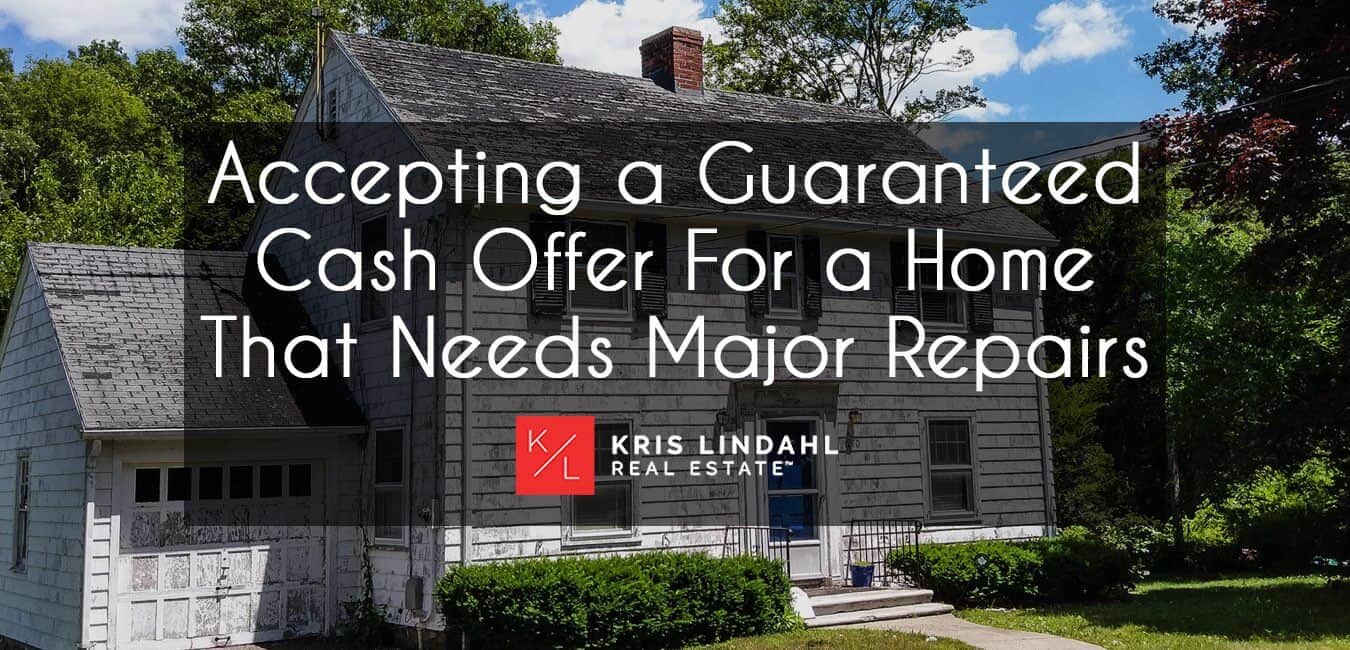
Selling a home that needs major repairs can feel like a daunting task. While some homeowners might consider taking on the repairs themselves to boost their property’s value, others look into alternatives like accepting a guaranteed cash offer. But is this the right decision for you? This blog post will guide you through the ins and outs of selling your home as-is. We’ll explore the advantages, potential drawbacks, and essential factors to consider to make an informed choice.
Understanding Guaranteed Cash Offers
Before we weigh the pros and cons, it’s crucial to understand what a guaranteed cash offer entails. Typically extended by real estate investors or companies specializing in buying homes, these offers promise a quick sale with no need for repairs or renovations. The buyer pays in cash, and the transaction can close remarkably fast. For homes needing significant work, this option can be enticing.
Receiving a cash offer means you bypass the traditional route of listing a home with a real estate agent. There are no open houses or showings to worry about, and you avoid the long wait times that often accompany traditional sales. For many, this streamlined process offers peace of mind, especially when selling a home in disrepair.
However, it’s essential to recognize that cash offers may come with trade-offs. The offer price is generally below market value, reflecting the buyer’s risk and renovation costs. This could mean receiving less than you might hope for, even with the convenience of a quick sale.
Pros of Selling a Home Needing Repairs for Cash
One of the most significant advantages of accepting a cash offer is the speed of the sale. Traditional home sales can take months, but selling for cash can close in as little as a week. This is particularly beneficial for homeowners facing financial difficulties or needing to relocate quickly.
Another benefit is the elimination of repair costs. Major home repairs can be expensive and time-consuming, not to mention stressful if you’re unfamiliar with construction work. By selling as-is, you pass the responsibility of repairs onto the buyer, saving both time and money.
Lastly, a cash offer means fewer contingencies. Traditional buyers often request inspections and appraisals, leading to potential renegotiations. Cash buyers typically forgo these steps, providing a more straightforward and less stressful transaction.
Cons of Accepting a Cash Offer
While accepting a cash offer can be convenient, it’s essential to consider the potential downsides. The most obvious is the lower sale price. Cash buyers look to make a profit by reselling after renovations, so their offers reflect anticipated repair costs and resale value.
Furthermore, accepting a cash offer might mean overlooking potential buyers who are willing to pay more. By not listing on the open market, you miss the opportunity to attract competitive offers, which could ultimately increase your profit.
Additionally, not all cash buyers have the same integrity. Some may attempt to capitalize on a seller’s desperation, offering far less than the home’s worth. It’s important to research potential buyers to ensure you’re working with a reputable and fair company.
Evaluating Your Home’s Condition
Before deciding to accept a cash offer, take a thorough look at your home’s condition. Evaluate the extent of the repairs needed and estimate potential costs. This can help determine if making improvements might yield a better return than selling as-is.
Consider hiring a professional inspector to identify issues you might have missed. Having a detailed understanding of your home’s problems will give you leverage in negotiations and help you make an informed decision about its sale.
Remember that some repairs add more value than others. Cosmetic updates, for instance, can significantly impact buyer interest without a massive investment. If your budget allows, consider making minor improvements to boost your home’s appeal before seeking offers.
Comparing Cash Offers to Traditional Sales
It’s vital to compare the benefits of a cash sale with those of a traditional real estate transaction. Listing with an agent allows your home to reach a broader market, potentially bringing in higher offers. However, it includes staging, showings, and possibly extensive repairs.
Traditional sales require patience but can provide a larger profit margin, especially if your property’s location or potential appeal outweighs repair concerns. Agents also bring valuable expertise, guiding you in pricing and marketing your home effectively.
On the other hand, cash sales eliminate much of the hassle and uncertainty. If your priority is convenience and speed, especially in pressing situations, a guaranteed cash offer might better suit your needs.

Legal Considerations When Selling for Cash
Selling a home for cash involves various legal considerations. Ensure you understand any contracts or agreements before signing. Consulting with a real estate attorney can provide peace of mind, ensuring your interests are protected throughout the sale.
Be aware of disclosure requirements in your state. While selling as-is typically shifts the repair burden, you may still be legally obligated to disclose specific issues. Neglecting this can lead to future disputes or legal action.
Finally, verify the legitimacy of the cash buyer. Check reviews, seek referrals, and confirm their reputation in the industry. Working with a trustworthy buyer minimizes risks and ensures a smoother transaction.
When to Accept a Cash Offer
Certain situations make accepting a cash offer particularly advantageous. If you’re facing foreclosure or significant financial hardship, a quick sale can provide immediate relief, allowing you to move forward without added stress.
Relocating for a job or life change also warrants considering a cash offer. The speed and simplicity of the sale can enable a smoother transition, freeing you to focus on your new beginning.
Additionally, if your home has significant structural issues or requires costly repairs, selling as-is may be the most practical choice, sparing you time, money, and effort.
Making the Final Decision
Deciding whether to accept a cash offer requires careful consideration of your circumstances, goals, and the real estate market. Weigh the pros and cons, and consult professionals to gain a comprehensive understanding.
Remember, there’s no one-size-fits-all answer. Each situation is unique, and your decision should align with your priorities, whether they include financial gain, convenience, or the desire for a fresh start.
By thoroughly evaluating your options, you can make a confident choice that serves your best interests and sets you on a path to success.
Next Steps and Resources
Ready to explore your options further? Consider speaking with a real estate professional to assess your home’s value and potential sale strategies. Their expertise can provide clarity and direction as you move forward.
For additional guidance, explore online resources and forums where homeowners share experiences and advice. Learning from others in similar situations can offer valuable insights and reassurance.
Finally, if you choose to proceed with a cash offer, research buyers carefully and seek legal counsel to ensure a smooth and secure transaction. Taking these steps will help protect your interests and facilitate a successful sale.
In conclusion, selling a home in need of major repairs involves navigating complex decisions. By understanding your options and weighing the benefits and drawbacks of a guaranteed cash offer, you can make an informed choice that aligns with your goals and needs.